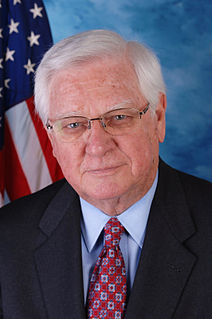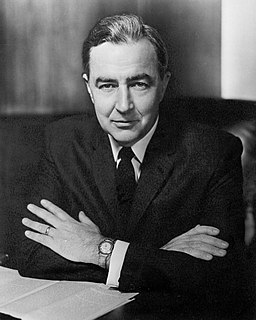A Quote by Scott Pruitt
When you declare a 'war on coal' from a regulatory perspective, the question has to be asked: where's that in the statute? Where did Congress empower the EPA to declare a war on coal?
Related Quotes
We have a problem with drugs? Let's declare war on drugs! We have a problem with crime? Let's declare war on crime! We have a problem with violence? Let's declare war on violence! The deeply ingrained American attitude that we can solve any problem w/enough force creates, feeds, & rewards the epidemic of violence we are currently experiencing.
I believe that the power to declare war is most important in limiting the powers of the national government in regard to the rights of its citizens, but that it does not require Congress to give its approval before the president uses force abroad. I do not believe that the framers of the Constitution understood the power to declare to mean "authorize" or "commence" war. That does not mean that the separation of powers or checks and balances will not work.
With 450,000 U. S. troops now in Vietnam, it is time that Congress decided whether or not to declare a state of war exists with North Vietnam. Previous congressional resolutions of support provide only limited authority. Although Congress may decide that the previously approved resolution on Vietnam given President Johnson is sufficient, the issue of a declaration of war should at least be put before the Congress for decision.































